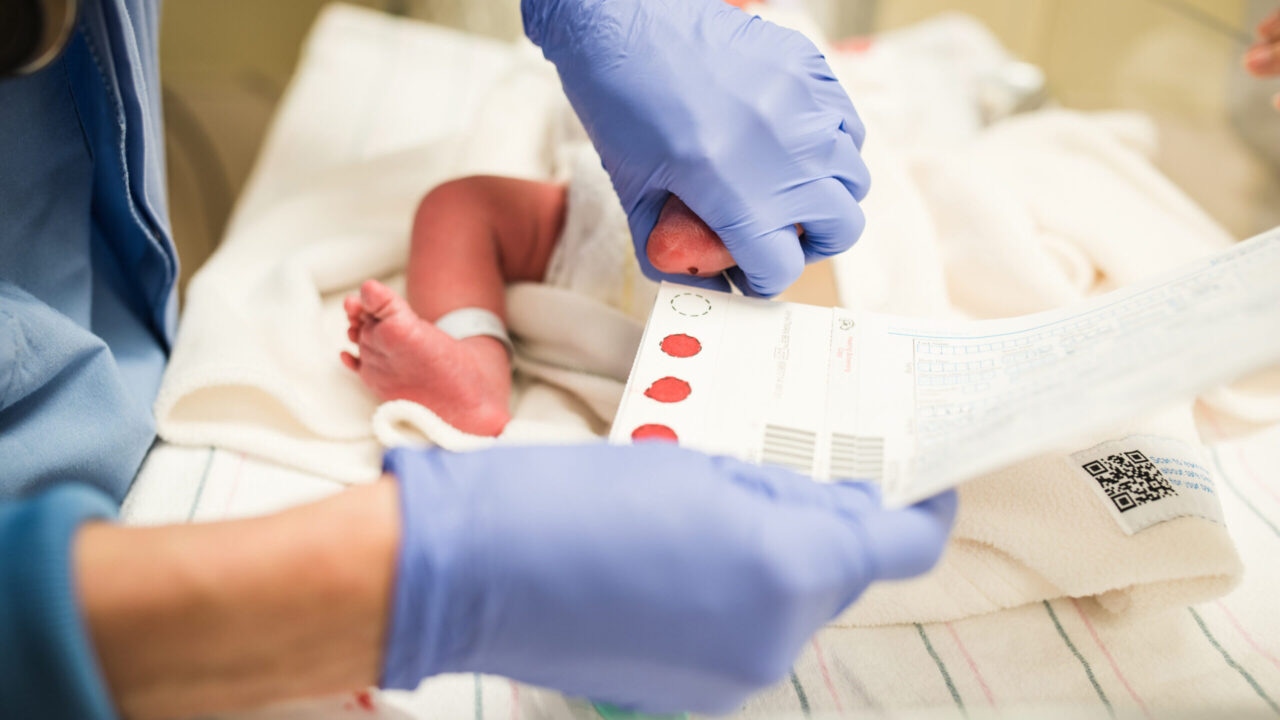Minnesota becomes first state to universally test newborns for congenital cytomegalovirus
Minnesota this week became the first state in the country to make screening for congenital cytomegalovirus (cCMV) available to every newborn.
1 in 200 babies are born with cCMV, according to data from the U.S. Centers for Disease Control and Prevention (CDC). Of those babies born with it, 1 in 5 will have long term health problems as a result, making it the most common infection to cause birth defects. Despite that, most expecting parents have never heard about it.
Steph Steidl is a mother of two. Her youngest child, Hank, was born with cCMV four-and-a-half years ago.
Hank’s birth was rather uneventful. He passed all of his screenings, and he was deemed a healthy baby, Steidl said.
“The day after he was born, a student from the U of M came in telling us about a study that the U and the Minnesota Department of Health were doing to test newborns and screen them for cytomegalovirus, she shared. “And I remember asking her, ‘If he has it, is there something that can be done?’ And she said yes.”

????????????????????????????????????????????????????????????????
That moment, after her second pregnancy, was the first she’d heard of cCMV.
She learned Hank was positive a couple of weeks later.
“It turned out there was quite a bit going on underneath the surface,” Steidl explained. “So he had a retinal scar, like a blind spot in one of his eyes, he had an abnormal brain MRI and he had neutropenia, which is dangerously low white blood cell counts that landed him in the hospital at a couple of months old.”
It was scary, but all of that was treatable (or at least manageable) with a change in care plans. The scarier part, Steidl said, was realizing that without that one student’s suggestion, she wouldn’t have known and wouldn’t have been able to get Hank the medical care he needed.
“He was asymptomatic at birth. And the really tricky and kind of devastating thing with [c]CMV is oftentimes complications are delayed onset,” she added.
The Steidels are not alone. 91% of women have never heard of it, according to data from the National CMV Foundation.
“And it causes thousands of birth defects very year in the United States,” CMV Foundation program director Amanda Devereaux said at a press conference at the University of Minnesota on Wednesday announcing the availability of screenings in-state.
Some of the biggest complications are vision and hearing loss.
“In comparison, a pregnant mom avoids lunchmeat and the chance of listeriosis impacting your baby is about one in 20,000,” Steidl mused. “So I just couldn’t believe the lack of awareness and the prominence of [c]CMV.”
“We expect about 300 infants will be born with congenital CMV each year in Minnesota,” Jill Simonetti,
manager of the Newborn Screening Program at the Minnesota Public Health Laboratory, added.
One additional drop of blood for the lab is all that’s needed for the initial cCMV screening, professor of pediatrics Dr. Mark Schleiss said.
The University of Minnesota Medical School professor headed up the research that led to the development of the cCMV screen that was just added to the Minnesota Public Health Laboratory’s Newborn Screening Program.
The additional test will be included in the existing $235 cost of newborn screenings in Minnesota. It doesn’t detect every case, Simonetti said, but Minnesota Public Health is working with the CDC to track its effectiveness and make improvements over time.
As for Hank, Steidl said these days he’s a typical 4-year-old, “running wild, loves football, just experienced his first Vikings’ devastating loss. He’s totally on track with his peers.”